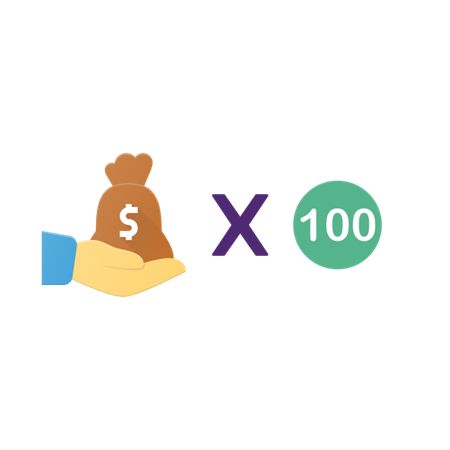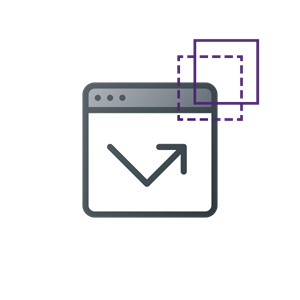The importance of Forex trading
The trading market is full of different assets that have their own distinctive sub-markets. There are stocks, commodities, derivatives, and other assets that have their own advantages, as well as disadvantages. And then, there is foreign exchange, also known as Forex.
Forex is market exchange of different currencies and getting a payout from that process. For example, the traders in any part of the world tend to buy the EUR/USD currency pair when the exchange rate between the two currencies is lower. And when the price increases, they usually sell them, making a certain gain from this exchange.
And there are many advantages to Forex that make it one of the biggest and most active markets in the world. According to estimates, the Forex market has almost $4 trillion of the daily trading volume. This, among many things, makes foreign exchange probably the most popular type of trading in the industry.
But apart from this main characteristic of Forex, there are other advantages to it that appeal to many traders all over the world, mainly:
- High liquidity
- Leverage and smaller deposits
- Smaller commissions
- Directional trading
- Market transparency
There are, of course, other minor advantages such as direct participation and the difficulty to manipulate or influence the market. However, the above-mentioned benefits are more popular among Forex traders and are the reason why they choose this asset over the others. So, here are these reasons to trade Forex.
Liquidity
One of the most important features of any asset, and not just of currencies, is its liquidity. If a certain asset is easily exchangeable for cash, that is, it can be sold or bought for money, then its liquid. And conversely, if an asset cannot be turned into cash right away or in a small amount of time, then it’s less liquid.
For example, people can more easily buy or sell a pen than a car. This means that a pen is more liquid and a car is less liquid. The reason is that there are more people willing to buy a pen than a car. Besides, pens are much more affordable than cars, thus, they’re easily bought/sold.
High liquidity is one of the biggest Forex trading advantages. But it also explains why many people lose funds in Forex. That’s because it is easier to engage in trading. So, let’s ask a simple question: will people buy currencies or stocks more frequently on a daily basis? The chances are, the answer will be currencies for a simple reason:

People buy currencies more often than stocks
Stocks are almost always used for trading and while it’s also one of the most popular assets on the market, the majority of people don’t engage in this form of financial exchange.
On the other hand, people travel from one country to another more frequently. This means that they need to have that country’s currency to pay for goods and services there. That’s why they buy foreign currencies with their national currency. And this type of exchange is much more frequent compared to buying stocks.
Besides, as we explained above, the liquidity of an asset is its ability to be turned into cash. And when it comes to Forex, it already deals with money - all the currency pairs are the couples of national money from different countries. This means that they already are liquid assets and can be bought/sold right away.
Leverage - one of the advantages of Forex
In most cases, starting a career as a Forex trader can require less financial resources than most other markets. Depending on a leverage rate that is being offered by a service provider (a broker or any other entity), the initial deposits can go pretty low.

Leverage is a rate at which traders’ deposits are increased by the provider. For example, if the leverage rate is 1:100, the initial deposits of, say, $100 will be turned into $10,000 of trading funds. This means that traders are able to buy larger amounts of currency pairs that they could with their smaller funds.
This also means that the payout size increases significantly. That’s why trading Forex is more appealing to traders than other assets. While the leverage can be found in other markets, it is more used in Forex, making FX trading benefits more apparent.
But leverage is associated with some risks too: while possible payouts increase in size, the possible losses expand as well. What this means is that trades with high leverage are very rewarding, as well as very risky. That’s why many traders usually treat this feature carefully.
Micro accounts also minimize deposit requirements
On top of that, many service providers offer micro and mini accounts that also help beginner traders initiate their trading careers. Mainly with micro accounts, traders are able to make significantly smaller deposits, as well as buy fewer currencies. For instance, if the standard Forex accounts require minimum deposits anywhere from $200 and more, micro accounts can go as low as $50. And the individual lots - buying the currency pairs - can revolve around $10.
When traders choose micro or mini accounts, the only main difference, and a possible drawback, is that the payouts also get smaller. Other than that, all the tools and indicators are still available for them to use and acquire more knowledge without risking too many funds.
Smaller commissions
Trading, just like any other field of economic activity, is based on getting a payout from one’s activity. To put it simply, when a trader buys currencies or a service provider allows them to do that, both of them expect some kind of a reward.
When it comes to service providers such as brokers, they mainly operate on commissions from trading. At least, that’s the case for the majority of assets like commodities, stocks, etc.
And why is Forex trading worth it? That’s because brokers don’t impose additional commission fees on their customers. Instead of commissions, there are spreads than create payouts for them.
A difference in buying and selling prices
Spread is a difference between the buying and selling prices of the currency pairs. And they’re measured in pips. For the majority of currency pairs, pips are measured as the fourth place after the decimal point. This means that if the buying price is 1.4580 and the selling price is 1.4578, the spread is 2 pips.

This type of measurement is mainly attributed to the stable currency pairs like EUR/USD, GBP/EUR, etc. The less stable currencies have a different method of calculation: pips here are in second place after the decimal point. For example, if the buying price of the Japanese yen is 102.98 and the selling price is 102.95, the spread, in this case, will be 3 pips.
So, these differences in prices are used as a commission fee for Forex service providers. They facilitate trade by using funds received from spreads. Of course, there are those providers who still charge commissions, but they’re not many on this market.
No restrictions on directional trading
In trading, there’s this phenomenon called directional trading which is based on traders’ views and predictions of the future price movements. This, in short, refers to the strategy of traders buying assets when their price is rising and selling them when the price is falling.
And in the Forex market, directional trading has no restrictions compared to other assets. For example, when it comes to the stock market, people don’t usually own companies’ shares. That’s why traders need to buy them in the first place and then sell them for money.
On the other hand, money is something that everyone owns. Therefore, trading in the Forex market means that you’re always buying one currency or another. This means that at any time, traders can directly buy or sell currencies without the need to borrow an additional asset. But that is also why Forex trading is a bad idea: people can more easily start trading without getting some experience first which is usually why they lose money.
Market transparency
In every type of trading, there are certain forces that influence asset prices. For example, company finances and revenues have an effect on their share prices, going up when the company is successful and going down when it struggles.
The same is true for Forex. In fact, if there’s one market with easily observable market forces, it’s probably foreign exchange. You see, currencies are issued by the governments; they have been doing this for a long time.

This means that not only economic but also political forces actively influence currency prices. This makes observing the market forces easier in Forex than in most other assets. That’s because there are countless popular publications and news sources that constantly cover political and economic conditions.
The Forex traders usually keep up with these developments and get an idea regarding the future direction of prices. Whereas collecting the data about the individual companies and their market conditions can be quite challenging, making it difficult to predict the price movements as well.